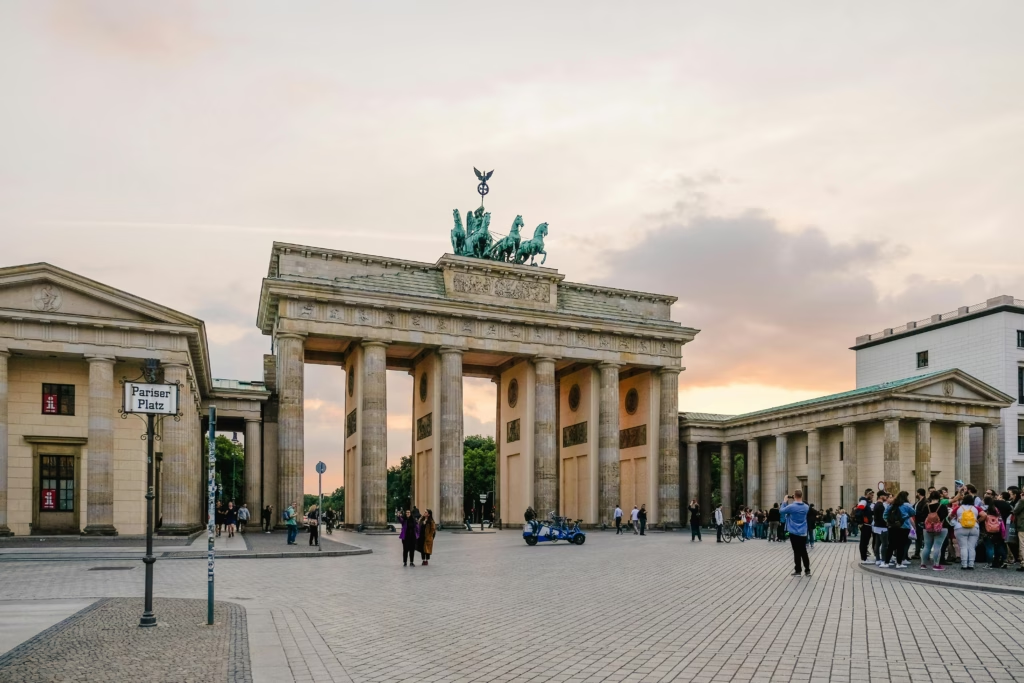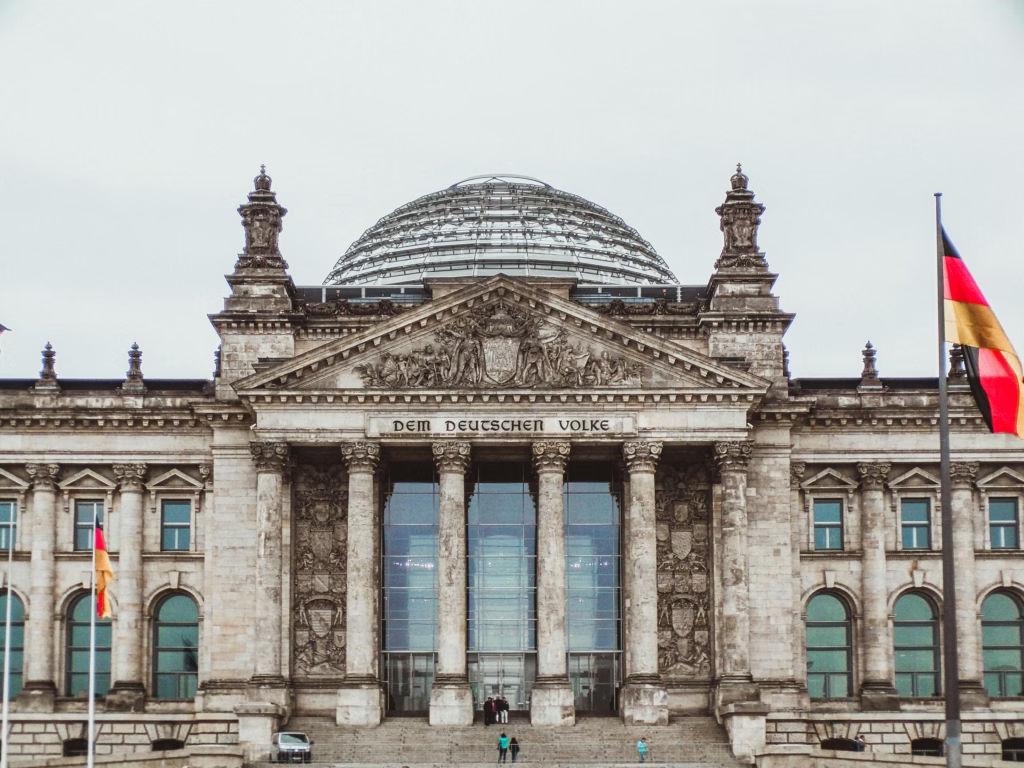When planning a trip to Germany’s vibrant capital, the question “is Berlin expensive?” often tops travelers’ minds. The short answer: Berlin is surprisingly affordable compared to other European capitals—but with caveats. While everyday living costs such as housing and dining can be budget-friendly, certain tourist areas and niche experiences might push your spending higher. In this guide, we’ll delve into every aspect of Berlin’s costs—from public transport and food prices to accommodation and entertainment—to help you decide how expensive Berlin is for you, whether you’re visiting for a week or planning to live there. Read on as we compare Berlin with cities like Munich, London, and Vienna, and share insider tips to travel Berlin on a budget.
The Cost of Living in Berlin
Berlin offers a unique blend of affordability and culture. While many perceive it as a cheap European capital, recent trends show rising costs in some areas, especially in trendy neighborhoods. Let’s break down the primary expenses:
Housing & Accommodation
- Rental Prices:
Berlin’s rental market has experienced a steady increase. In central areas, a one-bedroom apartment can range from €800 to €1,500 per month. In less central districts, prices may drop to around €600 to €1,000. - Short-Term Rentals:
For tourists, hotels and Airbnb options vary widely. Budget travelers can find hostels starting at €20-€40 per night, while mid-range hotels average €80-€150 per night.
Food & Groceries
- Dining Out:
A meal at an inexpensive restaurant costs around €10-€15. A three-course meal for two at a mid-range restaurant might run €40-€70. - Groceries:
Basic groceries (milk, bread, eggs, fruit) remain reasonably priced, with a monthly grocery bill for a single person ranging from €150 to €300.
Transportation & Utilities
- Public Transport:
Berlin’s BVG network is efficient and cost-effective. A single ticket typically costs around €2.90, while day passes and monthly subscriptions offer further savings. Learn more about public transportation on our Berlin Travel Tips page. - Utilities:
Monthly bills for electricity, heating, and water for a small apartment range between €150 and €250.
Quick Cost Comparison Table:
| Expense Category | Average Cost Range (in Euros) |
| One-Bedroom Apartment Rent (center) | €800 – €1,500 per month |
| Inexpensive Restaurant Meal | €10 – €15 per meal |
| Three-Course Meal for Two | €40 – €70 |
| Hostel Nightly Rate | €20 – €40 per night |
| Single Public Transport Ticket | €2.90 |
These figures provide a baseline for understanding how expensive Berlin is for residents, reflecting that while Berlin isn’t the cheapest city in Europe, it still offers competitive prices relative to other major cities.

Is Berlin Expensive to Visit? Breaking Down Tourist Costs
Tourists often ask, “how expensive is Berlin to visit?” By understanding the main cost drivers—transport, dining, and attractions—you can plan an experience that suits your budget.
Transportation & Getting Around
Berlin boasts one of Europe’s most comprehensive and affordable public transport networks. Here’s what you need to know:
Public Transport
- BVG Network:
Berlin’s buses, trams, U-Bahn, and S-Bahn are managed by BVG. A single ticket costs about €2.90, while a day pass ranges from €8 to €10. For extended visits, a weekly pass can cost around €30. For updated fare information, visit BVG’s official website. - Biking & Scooters:
Bike rentals and electric scooters are also popular. Daily rentals can range from €10 to €20, giving visitors flexibility while exploring the city. Explore more transportation options on our Getting Around Berlin page.
For more detailed information on routes and fares, check out BVG’s official website.
Airport Transfers
- From Berlin Brandenburg Airport (BER):
Options include regional trains, express buses, and taxis. A train ticket from BER to the city center typically costs between €3.50 and €4.50.
Food & Drink Prices
Berlin is known for its diverse culinary scene, ranging from traditional German cuisine to international flavors. Let’s answer the question “is Berlin expensive to eat and drink?”
Casual Dining & Street Food
- Local Eats:
A hearty currywurst with fries can cost around €3-€5 at street vendors. - Coffee & Snacks:
A cup of coffee averages €2.50-€4 in local cafés.
Mid-Range & Fine Dining
- Restaurant Dining:
For a three-course meal, expect to pay about €40-€70 for two people. There are also upscale dining options where prices can climb significantly higher. - Beer Prices:
Wondering “how much is a beer in Berlin?” A pint of local beer usually costs between €3 and €4, making Berlin relatively affordable compared to cities like London.
Food & Drink Price Snapshot:
| Item | Average Price (in Euros) |
| Currywurst with Fries | €3 – €5 |
| Coffee | €2.50 – €4 |
| Three-Course Meal (2 people) | €40 – €70 |
| Pint of Local Beer | €3 – €4 |
This data demonstrates that Berlin remains budget-friendly for dining and drinking, even if some upscale options push the envelope.
Attractions & Entertainment
Berlin’s rich history and vibrant arts scene ensure there is no shortage of things to do. Here’s how the costs break down:
Museums & Cultural Sites
- Entry Fees:
Museums typically charge between €8 and €15. For instance, the Pergamon Museum and the Jewish Museum Berlin have entrance fees in this range. - Free Attractions:
Many outdoor attractions—such as the Berlin Wall Memorial, Brandenburg Gate, and various parks—are free.
Nightlife & Events
- Clubs & Bars:
While entry fees for clubs may vary, many bars offer free entry or low cover charges. Drinks, as noted earlier, are moderately priced. - Special Events:
Concerts, theater performances, and festivals have a wide range of pricing, from free community events to high-priced tickets for special shows. Seasonal festivities like Oktoberfest in Berlin can also lead to higher food, drink, and accommodation costs, so it’s wise to plan your budget accordingly.
Quick Attractions Cost Table:
| Attraction Type | Typical Cost Range |
| Museum Entrance | €8 – €15 per person |
| Free Outdoor Attractions | Free |
| Club Entry Fees | Varies (usually €5 – €15) |
With numerous free and low-cost activities, Berlin offers a rich experience without breaking the bank.
Comparison: Berlin vs. Other Major Cities
Many travelers also compare Berlin with other European cities to determine overall value. Below is a comparative table summarizing average prices in Berlin, Munich, London, and Vienna:
| City | Accommodation (1-Bedroom, center) | Meal at Inexpensive Restaurant | Public Transport Ticket | Average Beer Price |
| Berlin | €800 – €1,500 | €10 – €15 | €2.90 | €3 – €4 |
| Munich | €1,000 – €1,800 | €12 – €18 | €3.20 | €4 – €5 |
| London | £1,500 – £2,500 (~€1,700 – €2,800) | £15 – £20 (~€17 – €23) | £4 (~€4.50) | £5 – £6 (~€5.50 – €6.50) |
| Vienna | €900 – €1,600 | €11 – €16 | €2.40 – €3.00 | €3 – €4 |
Note: Prices may vary due to exchange rates and seasonal fluctuations.
This table answers several competitive queries:
- Is Munich more expensive than Berlin?
Yes, Munich tends to be pricier, especially regarding accommodation and beer prices. - Is Berlin more expensive than London?
Berlin is significantly more affordable than London. - Is Vienna more expensive than Berlin?
Vienna’s prices are comparable, with Berlin slightly ahead in affordability for food and public transport.
Why Berlin is Both Affordable and Expensive
Berlin presents a unique paradox—it is both budget-friendly and, in some cases, expensive. Here’s why:
The Affordable Side
- Diverse Options:
From hostels to budget hotels and affordable street food to inexpensive public transport, Berlin provides plenty of cost-saving alternatives. - Abundance of Free Attractions:
Historical landmarks, parks, and many museums (on special days) offer free or discounted entry, making sightseeing accessible for all budgets.
The Expensive Side
- Upscale Neighborhoods & Experiences:
Areas such as Mitte and Prenzlauer Berg have seen price hikes in real estate, upscale dining, and boutique shopping. - Niche Offerings:
Certain luxury experiences—like high-end art exhibitions, specialty stores (for instance, the curious case of “why is lego berlin so expensive”), or premium tours—can drive costs up.
Balancing Act
Travelers often wonder, “is it expensive in berlin?” The answer is not black or white. Berlin’s affordability largely depends on your personal spending choices and the neighborhoods you choose to visit. While everyday essentials remain accessible, those seeking a luxurious experience might find certain aspects of the city costly.

Tips for Traveling on a Budget in Berlin
For those who want to maximize their Berlin experience without overspending, here are some expert tips:
1. Plan Ahead & Choose the Right Accommodation
- Budget-Friendly Lodging:
Consider hostels, budget hotels, or even short-term rentals from platforms like Radical Storage’s recommended partners. Booking in advance during off-peak seasons can save you money. - Neighborhood Selection:
Stay in up-and-coming districts outside the ultra-central zones. Areas like Friedrichshain or Neukölln offer a vibrant local vibe at lower prices.
2. Take Advantage of Public Transportation
- BVG Passes:
Invest in a day pass or weekly pass if you plan on exploring multiple areas. This is far more economical than buying single tickets repeatedly. - Bike Rentals:
Berlin is a bike-friendly city. Renting a bike or using a bike-sharing service is not only cost-effective but also an enjoyable way to see the city.
For more details on routes and fares, visit BVG’s official website.
3. Eat Like a Local
- Street Food & Markets:
Try Berlin’s famed street food markets and local eateries for affordable, delicious meals. Look out for food trucks and markets like Markthalle Neun. - Lunch Specials:
Many restaurants offer lunch deals that are significantly cheaper than dinner menus.
4. Explore Free & Low-Cost Attractions
- Walking Tours:
Join free walking tours to get acquainted with Berlin’s history and neighborhoods. - Cultural Events:
Keep an eye on community events, museum free days, and local festivals that often require little to no entrance fee.
5. Budget for Occasional Splurges
- Set Aside a “Fun Fund”:
Even if you’re traveling on a budget, it might be worth setting aside a small amount for those unique experiences that Berlin offers—be it a high-end dining experience or a special exhibition.
6. Use Internal Resources
- Radical Storage’s Travel Guides:
Check out additional resources and guides on radicalstorage.com/travel for insider tips on saving money while exploring Berlin.
Is Berlin Expensive?
After breaking down the numbers and comparing Berlin with other major European cities, we conclude that Berlin is neither strictly expensive nor entirely cheap—it all depends on how you plan your visit. For travelers looking for a cultural and historical adventure on a budget, Berlin is an excellent destination. Its affordable public transport, diverse dining options, and abundance of free attractions make it a strong contender among European capitals. However, if you prefer luxury accommodations and high-end experiences, certain areas of Berlin can indeed be on the pricier side.
Key Takeaways:
- Budget vs. Luxury:
Berlin offers a wide range of options that cater to both budget-conscious travelers and those seeking premium experiences. - Smart Planning Pays Off:
With proper planning—using affordable lodging, taking advantage of public transport deals, and exploring free attractions—you can enjoy Berlin without overspending. - Comparison with Other Cities:
When stacked against cities like Munich or London, Berlin often comes out as a more affordable destination, making it an attractive option for international travelers.
Whether you’re asking “is berlin expensive to travel” or “how expensive is berlin to live,” the city adapts to your budget. With its dynamic mix of history, art, and modern culture, Berlin remains a must-visit destination where every traveler can find something that fits both their interests and their wallet.
In conclusion, Berlin’s cost structure is as diverse as the city itself. While some aspects—such as luxury dining or upscale neighborhoods—can be expensive, the overall experience offers plenty of affordable alternatives for both short-term visitors and long-term residents. The answer to “is Berlin expensive?” ultimately depends on your travel style and priorities. With smart budgeting and a little insider knowledge, you can experience all that Berlin has to offer without breaking the bank.
For more travel insights, budget tips, and detailed city guides, be sure to explore other articles on Radical Storage’s Travel Blog. Happy travels and enjoy your Berlin adventure!


